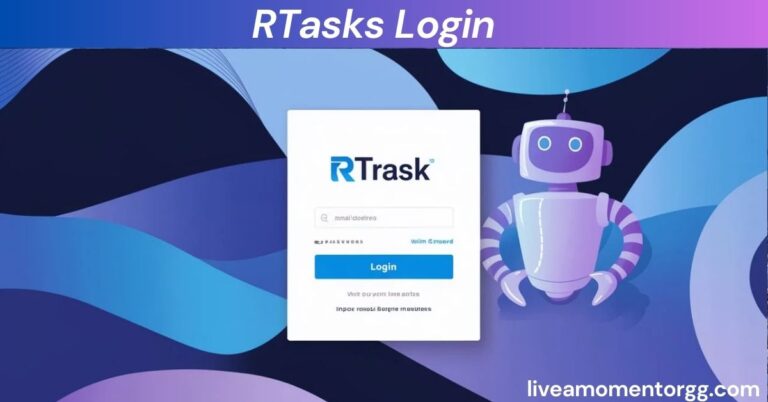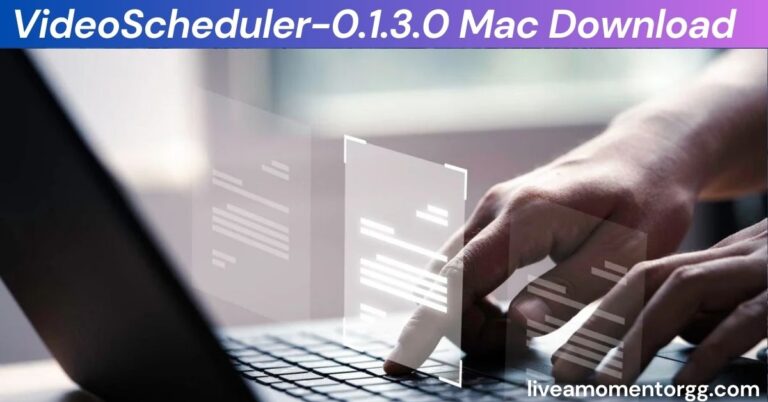Case No. 7906301 – Involuntary Tips: What You Need to Know
Tipping is a longstanding tradition in many service industries, especially in restaurants, where it’s often seen as a voluntary way to reward good service. Most people are familiar with the concept of tipping, where customers leave a small extra amount to express appreciation. But what happens when tipping shifts from being voluntary to mandatory? That’s where Case No. 7906301 – Involuntary Tips comes in.
In this article, we will explore the intricacies of this legal case, examining the impact it could have on both consumers and businesses. We’ll break down the core elements of involuntary tips, analyze the case’s significance, and dive into the potential changes this case might bring to tipping laws across the United States. The discussion will also provide essential insights for both businesses and consumers in navigating the evolving landscape of gratuities and service charges.
What Is “Case No. 7906301 – Involuntary Tips”?
Before delving into the case itself, it’s crucial to define what we mean by involuntary tips. Traditionally, a tip is something a customer chooses to give in exchange for good service. It’s a voluntary practice where a consumer decides how much money to leave based on their satisfaction with the service provided.
In contrast, involuntary tips occur when businesses add a mandatory service charge or tip to a customer’s bill without their consent. This often happens in the restaurant industry or other service-based businesses, where an automatic gratuity is added to the total amount due. Involuntary tips can raise concerns about fairness, transparency, and consumer rights.
In Case No. 7906301, a customer found themselves charged a tip they didn’t agree to. This case examined whether it was legal for businesses to automatically apply a service charge or tip, especially when it wasn’t clearly communicated or disclosed beforehand.

Key Points of the Case:
- A customer was charged an automatic tip without prior knowledge or consent.
- The customer argued that this charge violated consumer protection laws and their rights.
- The legal battle centered on whether businesses should be allowed to apply automatic tips without informing customers upfront.
The outcome of Case No. 7906301 has the potential to set a legal precedent that could reshape how tipping works in the U.S., especially regarding transparency and consumer rights.
Understanding Tipping and Gratuities in the U.S.
Tipping practices vary widely across different countries and industries. In the United States, tipping is a cultural norm that dates back to the late 19th century. While tipping is expected in many situations, the rules surrounding it can often be unclear or inconsistent.
The Traditional View of Tipping
In the traditional sense, tipping is a voluntary gesture. Customers choose how much to tip based on the service they received. It’s an extra payment on top of the base cost of goods or services, meant to show appreciation for a job well done. In many restaurants, a tip is typically between 15-20% of the bill, but it can vary depending on the quality of service, the region, and the establishment.
Also Read: McNeilus 1574810: A Key Component for Efficient Waste Collection
Automatic Gratuities: When Tips Are Mandated
Over time, however, many businesses, especially restaurants, began adding automatic gratuities to the bills of large parties (often 6 or more people). This practice ensures that service staff are compensated for large groups, but it has raised questions about fairness and transparency.
In many restaurants, an automatic gratuity of 18-20% may be added to the bill without asking the customer’s permission. While this is sometimes disclosed on menus, it’s not always made clear, and customers may be surprised when they see the extra charge. This leads to frustration, as customers may feel as though they have no control over the tip they are paying.
Tipping Laws and Regulations
The U.S. government has specific guidelines for tipping, particularly regarding wages for service workers. Under the Fair Labor Standards Act (FLSA), employees who earn tips may be paid a lower hourly wage, as tips are meant to supplement their income. However, if employees do not earn enough in tips to meet the federal minimum wage, their employer must make up the difference.
While the FLSA doesn’t directly address involuntary tips, it sets guidelines for employers on how to handle tips and service charges. Case No. 7906301 raised questions about whether these automatic gratuities should be treated as tips or simply as a service charge, as they don’t always reach the employees who serve customers.
What Happened in Case No. 7906301?
The Case No. 7906301 legal battle began when a customer discovered an automatic tip had been applied to their restaurant bill. The tip, which was added without their consent, amounted to a significant portion of the total bill. The customer contested the charge, claiming they were not informed that an automatic gratuity would be added and were unaware that it was considered a tip.
Also Read: Showlove: The Ultimate Social Platform to Request, Give, and Receive the Gifts You Really Want
The Core Issue: The main issue was whether businesses had the right to charge a tip without the customer’s explicit consent. The legal argument revolved around whether it was fair or lawful for a business to impose a service charge, which was labeled as a tip, without clearly communicating this to customers beforehand.
The customer argued that tipping should be a voluntary action, and by automatically adding a gratuity to their bill, the restaurant had essentially forced them to pay a tip they didn’t want to give. The case led to a legal review of tipping practices across the country, and its outcome could affect future business practices nationwide.
Arguments from Both Sides
- Consumer Side: The customer argued that they should not be charged a tip they didn’t agree to. They contended that the automatic service charge was deceptive and violated their rights as consumers. The lack of transparency about the charge and its inclusion on the bill without clear notice was a key point of contention.
- Business Side: The restaurant defended its practice by arguing that automatic gratuities were a standard part of the industry, especially for large parties. They contended that the practice was disclosed in the restaurant’s terms and conditions and that customers were notified upon making a reservation.
The Legal Ramifications of Involuntary Tips
The outcome of Case No. 7906301 could have far-reaching consequences for businesses, especially in industries that rely heavily on tipping, like hospitality and food services. If the court rules in favor of the customer, it could lead to stricter regulations on tipping practices, forcing businesses to be more transparent about their charges.
Potential Outcomes
- Stronger Consumer Protections: A ruling against automatic gratuities could lead to stronger consumer protection laws, requiring businesses to notify customers more clearly about any service charges or tips being added to their bill.
- Revised Tipping Policies: Restaurants and service-based businesses might need to adjust their policies, either eliminating automatic tips or ensuring that customers are fully aware of any added charges.
- Shift in Industry Standards: A decision in favor of the customer could set a precedent for similar cases, leading to industry-wide changes in how tips are handled and communicated.
Legal Precedent
The ruling in Case No. 7906301 could establish a new standard for tipping in the U.S., requiring businesses to seek more explicit consent before adding a tip or service charge. This could change how businesses handle gratuities, potentially leading to a more transparent tipping system that allows customers to make informed decisions.
Also Read: Inarcassa: Everything You Need to Know
Why Is Case No. 7906301 So Important?
The significance of Case No. 7906301 cannot be overstated. It directly addresses an issue that affects millions of consumers and businesses every day. If the court sides with the customer, it could shift the entire culture of tipping in the U.S., ensuring that customers have more control over how much they tip.
For businesses, the case highlights the need for clear communication and transparency. While automatic gratuities are legal in certain circumstances, businesses must ensure that their policies are well understood by customers. This case also brings attention to the importance of fair wages for service staff, as tipping systems are often used to supplement low wages.
Impacts of Case No. 7906301 on the Tipping Industry
If the ruling in Case No. 7906301 were to favor the customer, it could create ripples throughout the entire tipping industry. Many restaurants, hotels, and other service-based businesses may be forced to rethink their tipping policies. Some businesses might eliminate automatic gratuities altogether, while others could introduce more transparent systems that allow customers to have greater control over how much they tip.
Potential Changes to Tipping Practices
- Clearer Disclosure: Businesses will likely be required to clearly disclose tipping practices, ensuring customers are aware of any service charges before the bill is finalized.
- Shift to Voluntary Tips: More businesses could shift back to a voluntary tipping model, where customers are encouraged to leave a tip based on service but are not forced to pay one automatically.
- Employee Wages: With the shift away from automatic tips, businesses may be encouraged to raise wages for service staff to ensure fair compensation.
Industry-wide Effects
The case could also encourage other sectors of the service industry to examine their tipping practices. Industries such as hair salons, taxi services, and hotels may also face increased scrutiny over automatic tips, leading to broader changes in how tips are handled across the U.S.
How Can Consumers Protect Themselves from Involuntary Tips?
Consumers have the right to know what they’re being charged for, including any tips or service charges. Here are some ways to protect yourself from involuntary tips:
1. Always Check Your Bill
Before you pay, always review your bill to ensure no automatic gratuity or service charge has been added without your knowledge. If you see a charge labeled as a tip, verify that it was communicated to you before the bill was presented.
2. Ask About Tipping Policies
If you’re unsure whether a tip has been added, don’t hesitate to ask the staff. Many restaurants and service businesses are happy to explain their tipping policies upfront.
3. Know Your Rights
If you are charged an involuntary tip, understand the consumer protection laws in your state. Many states have specific laws that protect consumers from unfair or deceptive business practices, including involuntary tipping.
4. Voice Your Concerns
If you find yourself in a situation where an involuntary tip has been added, raise the issue with the management. Many businesses will remove the charge if you express concern.
Could Case No. 7906301 Change Tipping Laws Nationwide?
The outcome of Case No. 7906301 could have nationwide implications, potentially leading to changes in tipping laws across the U.S. If the court rules in favor of the customer, it could prompt lawmakers to reconsider the current laws surrounding tips and service charges.
Possible Legal Reforms:
- Clearer Regulations: Tighter regulations on how and when tips can be added to bills, including mandatory disclosures.
- Consumer Protection: Stronger protections for consumers to ensure that they are not charged involuntary tips without prior notice.
- Changes in Service Charge Laws: A shift in how service charges are defined and whether they can be legally considered tips.
Also Read: What is Scanavigo? A Comprehensive Guide for Beginners
Conclusion: The Future of Tipping in the U.S.
Case No. 7906301 is more than just a legal dispute—it’s a pivotal moment in the conversation about tipping practices and consumer rights. Whether the ruling favors the customer or the business, it’s clear that the way tips are handled in the U.S. is under scrutiny.
As tipping norms continue to evolve, both consumers and businesses must stay informed and adapt to any changes that arise from this case. For consumers, understanding your rights and being vigilant about what you’re charged can help ensure fairness in tipping practices. For businesses, transparency and clear communication are key to avoiding legal issues and maintaining positive relationships with customers.
FAQs about Case No. 7906301 – Involuntary Tips
What is the main issue in Case No. 7906301?
The case focuses on whether it is legal for businesses to automatically add a tip to a customer’s bill without their consent or prior knowledge.
Can businesses add tips without notifying customers?
While businesses can add tips, they must clearly notify customers before the payment process is finalized. Failure to do so may be considered a violation of consumer rights.
What should I do if I notice an involuntary tip on my bill?
Review your bill carefully, ask the staff about their tipping policy, and dispute the charge if you believe it is unfair or illegal.
Could this case lead to nationwide changes in tipping laws?
Yes, depending on the outcome, Case No. 7906301 could lead to changes in tipping laws, particularly regarding automatic gratuities and service charges.
How can consumers protect themselves from involuntary tips?
Consumers can protect themselves by reviewing their bills, asking about tipping policies upfront, and being aware of their legal rights in case of a dispute.






